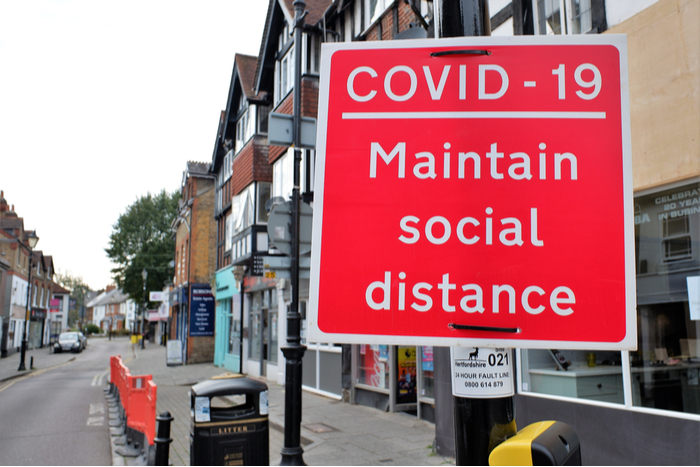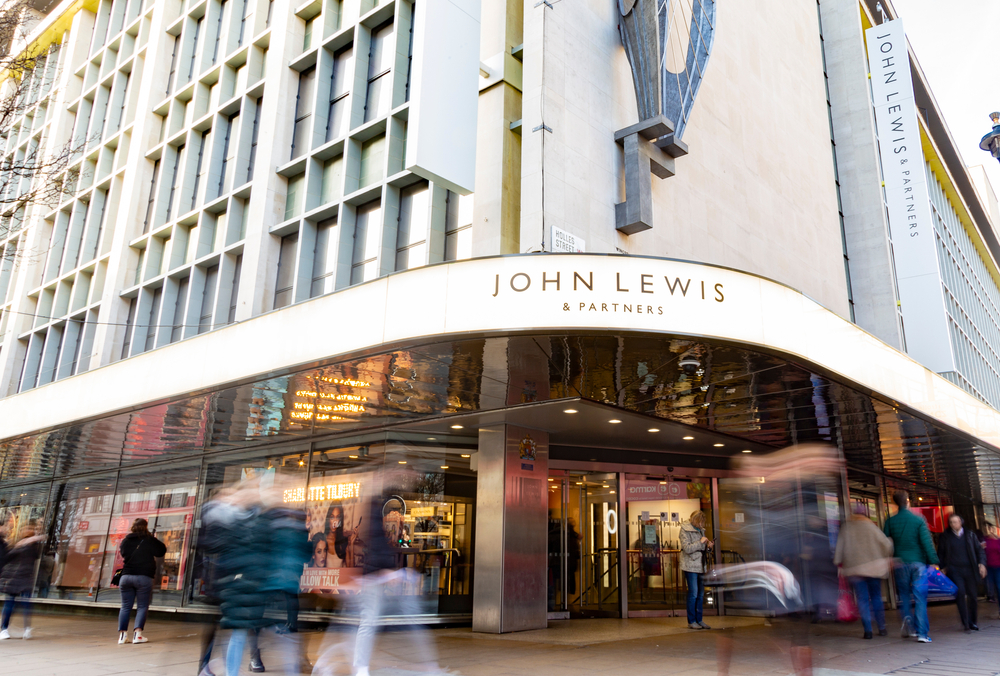It’s goodbye to table service and hello to full theatres and nightclubs. These are the new Covid rules for England come Monday next week.
The legal requirement to wear a face mask is also to be scrapped from July 19 – known as “Freedom Day”, Prime Minister Boris Johnson confirmed earlier this week. Freedom Day also means almost all legal restrictions on social contact and social distancing will be removed.
Despite the legal requirement being dropped, the government still “expects and recommends that people wear face coverings in crowded areas”. Johnson said it would be a matter of “personal responsibility”, while transport operators and places such as shops are likely to decide their own policy on the issue.
Ahead of Freedom Day, some consumers are already expressing unease with the idea of shopping with no restrictions, given another wave of Covid-19 cases is gripping the UK. On the flipside, others are eager to shop mask free, especially since almost 53 per cent of the country has been double-vaccinated at the time of writing, and the rate of people dying and hospitalisation has remained low amidst the surge in new cases.
Either way, retailers are faced with the dilemma of having to try and cater to both type of customers.
A recent YouGov report found that 64 per cent of Brits plan to keep wearing masks even after Covid-19 restrictions end, while 40 per cent will continue avoiding crowded places. Meanwhile, payment firm Adyen found that 24 per cent of consumers believe measures put in place to prevent the spread of Covid-19 made the shopping experience less enjoyable.

The government’s decision to go ahead with Freedom Day next week has been met with ongoing criticism from unions representing shop workers across the UK.
Usdaw, perhaps the biggest of those unions, recently called on the government to reverse plans to end compulsory face coverings. It wrote to business secretary Kwasi Kwarteng saying there was no reason why requirements to wear face coverings and maintain social distancing in busy public areas like shops could not continue.
Meanwhile, BRC chief executive Helen Dickinson said next week’s changes are going to be big and will take everyone time to adjust given the public has become used to restrictions over the past 16 months.
“The Prime Minister has said he expects people to continue to wear face coverings in many locations that they currently are required to,” she told Retail Gazette.
“Retailers are also likely to continue with many of the existing safety measures such as hand sanitiser and Perspex screens.
“It is vital that the government is as clear as possible as to how they expect people to act after July 19.
“There has been a big rise in violence and abuse against retail workers during the pandemic and colleagues cannot be put in the firing line because of this change in policy.”

The removal of compulsory mask-wearing is also likely to deter many consumers from visiting crowded places indoors, such as shopping centres and outlets.
According to Scott Parsons, chief operating officer of Westfield owner Unibail-Rodamco-Westfield, London’s two Westfield centres have been trading at around 70 per cent footfall on 2019 figures.
“Since reopening in April, we have been busy, but within safe capacity and we expect to see this figure continue,” he said.
“Ensuring people feel safe when visiting our centres is of utmost importance and from July 19, we will continue with a number of measures such as heightened cleaning and capacity monitoring for the comfort of out visitors.
“We will also encourage mask wearing, however individual retailers may implement their own policies.
“Because of the sheer scale of our centres, with wide malls and outdoor areas, we feel confident that we can deliver a safe and enjoyable experience for all our visitors.”
Retail expert Nelson Blackley predicts that some retailers, particularly those with limited in-store space, are likely to choose to continue asking customers to wear masks and perhaps limit and/or monitor the in-store visitor numbers at any one time. Retailers can also leverage appointments to provide an additional layer of security for shoppers by giving them control over their own in-store experience.
“In larger stores, in particular supermarkets, many of these rules will now be relaxed although presumably this might potentially cause some confusion and conflict between those shoppers who choose to continue wearing a mask and those who want to take them off after months of restrictions,” he said.
“The relaxation of rules in England can only benefit the retail sector”
“However I can’t imagine supermarkets themselves insisting on continued face mask wearing, simply because of the size and demographic diversity of their customer base.
“As has been the case since the pandemic began, individual shoppers will make decisions on where to shop based on a range of factors – but with their perception of the risk of infection remaining high on that list.
“Overall, the relaxation of rules in England from next week can only benefit the retail sector and provide increased flexibility for both retailers and shoppers.”
Meanwhile, Duncan Reed, regulatory partner at UK law firm TLT, argued that that UK retail has proven it can adapt to regulatory change, and that Freedom Day was another step on that journey.
“While shoppers who have been purchasing goods exclusively online during the pandemic may transition back to physical stores, stores will increasingly play a hybrid role, catering for in-store purchases as well as dealing with the fulfilment of online orders,” he told Retail Gazette.
Birmingham City University fashion business lecturer Sophie Johnson highlighted how stores had been competing with online retailers and online offerings prior to the pandemic.
“UK retailers must continue to compete to get people back in to store and offer experiences, but this time to a digitally adjusted and anxious consumer that may still continue to disengage with an in-store experience and only shop for essentials out of peak hours,” she said.
Ultimately, the continuation of mask wearing restrictions will come down to individual retailers. The government has removed the legal requirements but have said they recommend the wearing of face masks where possible.
This leaves retailers having to decide on their own policies, something which has unnerved many as they prefer to get more specific guidance. Retailers will undoubtedly have to be careful and perhaps survey their market to see what will work best for them. What works for one retailer may not work for another.
Click here to sign up to Retail Gazette‘s free daily email newsletter


















